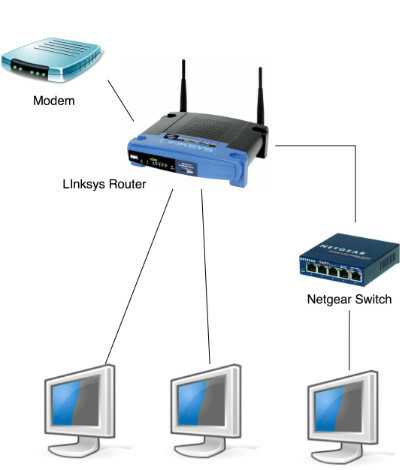1
I'm renovating my house and, in addition to all the other infrastructure put behind drywall, i am also adding a wired home network. Every room will have at least one cat5 jack and the command center is together with the cable and phone hub in the utility room. I want to support ethernet connection from every room and maybe a network printer.
Currently, I have:
- Comcast cable internet and an associated modem
- A Linksys Wi-Fi router that has 4 ethernet jacks in the back
- An unpacked Netgear 5 port switch.
So my questions are:
In the simplest scenario in which different computers on the network do not access one another for file sharing or apps but they all do access the printer, do I need to use the switch or even a separate router?
In other words, the network would be used only for wired internet connection and the printer.In the above scenario, do I need a computer that will act as the domain controller?
if the answers above are NO, when do I need a separate switch beside the Wi-Fi router built-in one or a domain controller?

Here is a relevant question about switches: https://superuser.com/questions/1216118/how-can-i-determine-if-a-network-switch-has-sufficient-bandwidth-to-support-pc-t
– SDsolar – 2017-07-22T05:20:01.330Disable file sharing, or block all network access by other PC's on the network in the OS for each PC, then use a network printer connected to the router or switch. – Moab – 2012-05-16T20:17:29.810